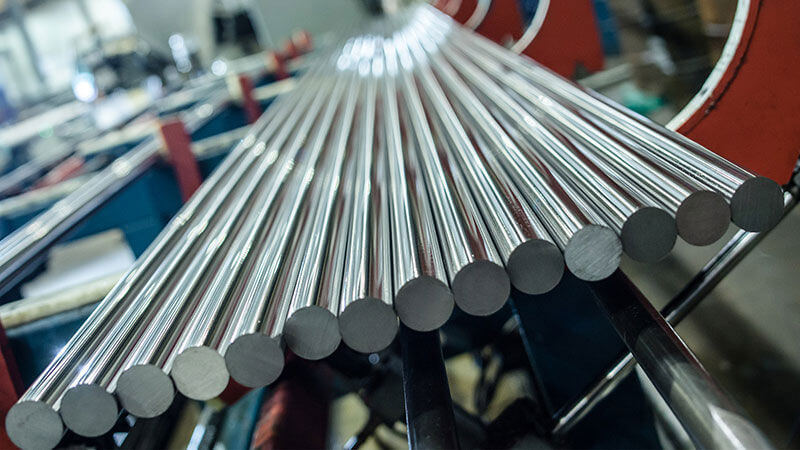The corrosion-resistant Hastelloy C276 Round Bars are wrought. The fact that these UNS N10276 Round Bars do not require solution heat treatment after welding is a major benefit. These are utilized in a variety of applications, including chemical process equipment and flue gas desulfurization equipment. It’s also machinable, however, the alloy work hardens like most nickel-base alloys. These are available to our valued customers in a variety of diameters, wall thicknesses, and sizes, all at very reasonable prices.
Characteristics
The qualities of the nickel alloy have been linked to Hastelloy Alloy Round Bars being employed in harsh environments. It’s a nickel-chromium superalloy with a high molybdenum content (15-17 percent ). There are also controlled amounts of tungsten and iron, as well as a carbon content that is kept to a minimum. Carbide deposition is minimized during heat treatment and welding when the carbon content is low.
This means that the metal retains excellent pitting and crevice corrosion resistance even when employed in welded systems. Welded portions in other materials may grow weaker after being exposed to heat during welding, making them more corrosion resistant. One of the major features is the material’s corrosion resistance. This material is extremely resistant to general corrosion, including stress corrosion cracking, pitting, and crevice corrosion, even in tough circumstances.
Sulphuric, hydrochloric, and phosphoric acids; severely oxidizing, acidic, and acid chlorides; and solvents, conventional and acetic acids, acetic anhydride, liquid chlorine gas, hypochlorites, and chlorine solutions are all exceedingly resistant to this. Hastelloy C276 Round Bars are well-known in the chemical processing industry because of this. It also has a high resistance to corrosion caused by seawater.
Applications
These are utilized in a variety of applications, including chemical process equipment and flue gas desulfurization equipment. It’s also machinable, however, the alloy work hardens like most nickel-base alloys. These are available to our valued customers in a variety of diameters, wall thicknesses, and sizes, all at very reasonable prices.
HASTELLOY C-276 is a nickel-chromium-molybdenum alloy with unsurpassed global corrosion resistance. It is resistant to a wide range of chemical process conditions, including ferric and cupric chlorides, hot contaminated mineral acids, solvents, chlorine, and chlorine contaminated environments (both organic and inorganic), Hypochlorite and chlorine dioxide solutions, dry chlorine, formic and acetic acids, acetic anhydride, seawater and brine solutions, and hypochlorite and chlorine dioxide solutions In the as-welded condition, Alloy C276 resists the production of grain boundary precipitates in the weld heat-affected zone, making it suitable for most chemical operations. It has good pitting and stress corrosion cracking resistance.
Fabrication and heat treatment
Hastelloy C276 can be machined using the same techniques as are used for iron-based alloys. Commercial coolants are used in machining operations. Water-based coolants are used in high-speed activities like grinding, milling, and turning. Gas-tungsten arc welding, shielded metal-arc welding, gas metal-arc welding, and submerged-arc welding are all used to weld Hastelloy C276.
Conclusion
Finding an alloy that can work in such a demanding environment is not easy. Because of its outstanding corrosion resistance to a wide range of hostile media, Hastelloy C276 Round Bars are a product worth considering. It’s employed in a wide range of manufacturing applications and is regarded as one of the most adaptable alternatives for severe conditions.
Hastelloy C276 Round Bars have a high molybdenum content, which aids in pitting and crevice corrosion resistance. It’s used in waste fluid treatment systems’ more extreme locations when other materials might not be able to handle the harsh conditions.
Chemical processing requires Hastelloy C276 Round bars as well. Ferric and cupric chloride ions, chlorine, hypochlorite, chlorine dioxide, organic acids, acetic anhydride, seawater, brine, and sour oil and gas fields are among the applications for which it has been chosen.

